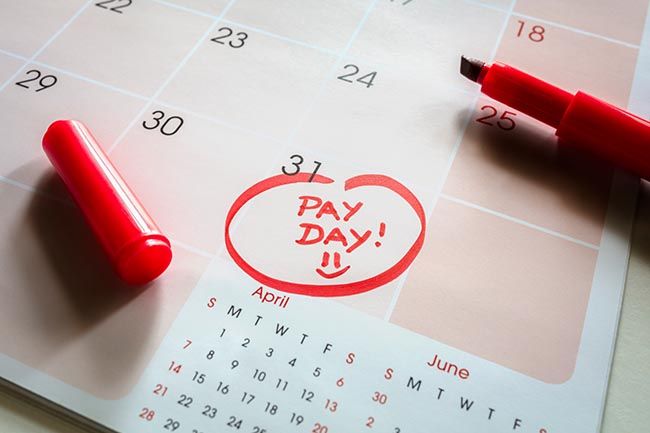The ways employees are paid in the UK
Before going into detail about the different ways you could expect to receive your pay, it is important to look at how your earnings may be calculated.
In the UK, the way your wages are calculated will depend on the type of pay your employer chooses to give you. Some workers are paid an hourly rate; this means that they are getting paid for every hour that they work. Others are paid a salary. This amount is how much you would be paid in one year and is usually paid in monthly instalments. Your contract will usually specify how many hours you will have to work every week.
Some people are paid on a ‘per piece of work’ basis. This means that you will earn money for every item that you produce. Alternatively, employers can choose to pay their staff on a commission basis (either with or without a salary). This is when you earn a percentage of, for example, the sales that you make.
Ways you can receive your wages
How you receive your wages can vary between employers.
The most common way of receiving your income is through your bank account. Using Pay As You Earn (PAYE), your employer should take any tax and National Insurance due from your earnings (known as your gross pay), before sending your take-home pay (also known as net pay) to your bank account.
Alternatively, you may be paid in cash or via a cheque. Both methods are becoming rarer, however.
In addition to your pay, you may be entitled to other benefits such as a company car or health insurance; these should be specified on your employment contract.
Payment Frequencies
When you are paid can also vary.
As an employee, you could be paid daily, weekly, or monthly.
If you are paid monthly, you may be paid on the last day of the month or a few days before this date.
If you are unsure as to when to expect your pay, take a look at your employment contract.
Understanding deductions
Understanding what deductions you can expect to be made from your earnings is a vital part of fully understanding your pay.
The two main deductions that you can expect to see on your payslip are tax and National Insurance.
If you have a student loan and earn over the minimum amount required to begin making repayments, you may see that this is taken away from your salary, too.
There are also other deductions that could occur, such as a court order or child maintenance payments.
Additionally, if you are receiving what are known as ‘benefits in kind’ (such as a company car or health insurance) these could be taxable in the UK.
If you have a workplace pension you could also see this deducted from your wages.
What are the legal working hours in the UK?
In the UK, you are unable to work more than an average of 48 hours per week. This is calculated over a 17-week period. This means that it does not matter if you work more than 48 hours for a few weeks, as long as over 17 weeks you are working an average of fewer than 48 hours per week. If you are under 18 years old, different rules will apply.
Additionally, depending on your career, the average may be calculated over a different number of weeks. Take a look at the government website for more information.
Do employers have to pay you on payday?
Yes, employers are required to pay you by the established payday. If your employer does not pay you when your employment contract specifies that they should, this could be a breach of contract.
If this has happened to you, you should seek advice from Citizens Advice as soon as possible.
Problems getting paid
If you are having any issues betting paid, your first port of call should usually be to speak to your employer. You could also try speaking to Human Resources to discuss your concerns.
If a mistake has been made, you should be paid immediately - there is no need to wait until your next payday.
If you are not being paid, you can contact Citizens Advice for guidance on what to do next.
Summary
Understanding how you get paid in the UK and the deductions that may be taken from your income is vital. This way, you can not only deal with any problems that may arise, but you can also calculate your take-home pay and create a budget that works with your wages.

